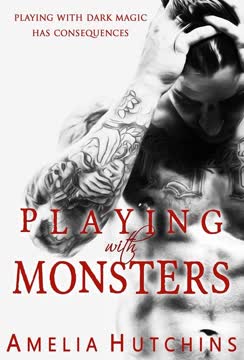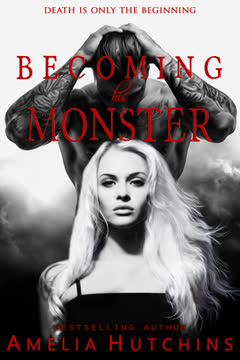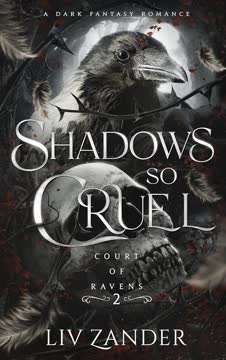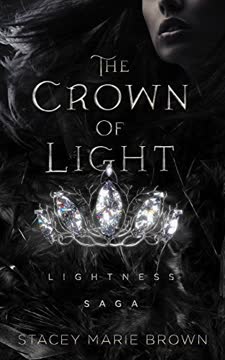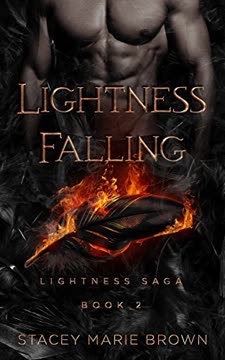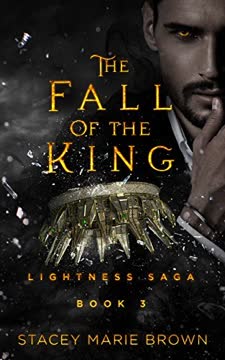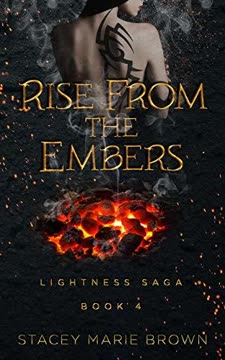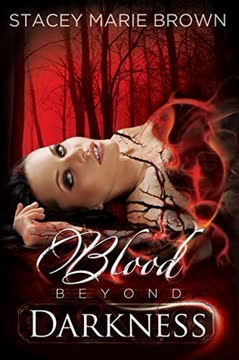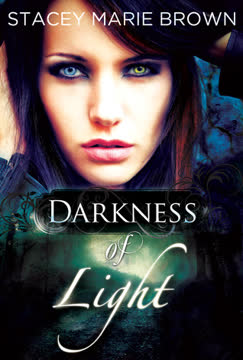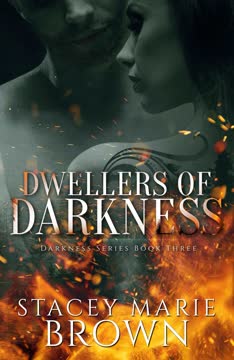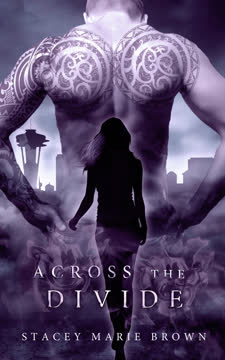Plot Summary
Ashes and Aftermath
The story opens in a devastated world where demons and monsters have overrun humanity. Lucian, a powerful, ancient being, surveys the carnage with his loyal companion Spyder. The air is thick with death and sulfur, and the remnants of civilization are scattered among burning bodies. Lucian's focus is on finding Makenna, a missing child, and protecting Lena, the woman he loves, from Lucifer's relentless pursuit. The emotional weight of loss and the burden of leadership press on Lucian, who is both feared and needed by those who remain. The chapter sets the tone of a world teetering on the edge, where love and violence are inseparable, and survival demands impossible choices.
Monsters Among Us
Lena, newly immortal and wracked with restored emotions, mourns her lost family and coven. Her pain is raw, intensified by her transformation and the knowledge that she is hunted by Lucifer. In her stasis, Lena is tormented by Lucifer, who uses Makenna as bait and tempts her with promises of love and power. The lines between victim and monster blur as Lena confronts the darkness within herself and those around her. The chapter explores the psychological toll of trauma, the seductive nature of evil, and the struggle to retain humanity in a world where monsters are both literal and metaphorical.
The Bond That Binds
The complex bond between Lucian, Lena, and Spyder is revealed as both magical and emotional. Spyder suffers from a painful connection to Lena, one that cannot be easily severed. The trio is caught in a web of desire, loyalty, and magic gone awry. Lena's accidental claiming of both men has consequences that ripple through their lives, forcing them to confront uncomfortable truths about love, possession, and sacrifice. The chapter delves into the nature of bonds—chosen and unchosen—and the agony of wanting what cannot be freely given.
Lucifer's Temptation
Lucifer's pursuit of Lena intensifies, offering her a place at his side, the promise of family, and the restoration of what she's lost. He is both charming and terrifying, embodying the allure of forbidden power. Lena is torn between the man she loves and the devil who understands her darkness. The psychological battle is as fierce as any physical confrontation, with Lena's agency and desires at the center. The chapter explores the seductive pull of evil, the cost of agency, and the pain of impossible choices.
Secrets and Sacrifice
Lucian's secrets come to light—his role in the deaths of Lena's family, the bargains he's struck, and the lengths he'll go to protect her. Lena is devastated by the truth, feeling betrayed and isolated. The emotional climax is raw, with accusations, confessions, and the threat of abandonment. The chapter examines the price of survival, the weight of leadership, and the agony of loving someone capable of monstrous acts. Sacrifice is shown as both noble and destructive, with no easy answers.
Fury's Price
The magical bond between Lena, Lucian, and Spyder reaches a breaking point. The only way to free Spyder is through an act of intimacy that tests their boundaries and trust. The trio must confront their desires, fears, and the consequences of their actions. The ritual is both erotic and tragic, a desperate attempt to reclaim agency and heal wounds. The chapter explores the intersection of magic, sexuality, and power, highlighting the ways in which love can both heal and harm.
The Devil's Bargain
As the battle against Lucifer escalates, alliances are tested and betrayals come to light. Erie, the unpredictable goddess of war, enters the fray, bringing chaos and unexpected aid. The characters must navigate a landscape where trust is scarce and every choice has consequences. The chapter is a whirlwind of action, strategy, and shifting loyalties, underscoring the precariousness of survival in a world ruled by monsters.
Club Chaos Unleashed
Club Chaos becomes the stage for power plays, sexual politics, and the public claiming of Lena as Lucian's queen. The club's opening night is a spectacle of pleasure and danger, with Lena at the center. The ritualistic claiming is both empowering and objectifying, forcing Lena to confront her own desires and the expectations of those around her. The chapter is a meditation on power, performance, and the ways in which love and dominance intertwine.
The Queen's Claim
Lucian's open claim of Lena as his queen is both a triumph and a source of anxiety. The immortals bear witness as Lena is branded, her place beside Lucian cemented. Yet, doubts linger—about love, agency, and the future. The chapter explores the tension between public identity and private emotion, the need for validation, and the fear of being reduced to a possession. Lena's journey toward self-acceptance and agency is fraught but determined.
Blood and Betrayal
The battle for the guild reveals the true cost of survival. Friends are lost, allies are transformed, and the line between hero and monster blurs. Alden's transformation into an Unseelie prince is both a tragedy and a necessity. The chapter is a meditation on the cost of power, the inevitability of change, and the pain of watching loved ones become something unrecognizable. Betrayal is shown as both personal and systemic, a consequence of living in a world at war.
Hell's Gate Opens
The opening of Hell's Gate marks the story's darkest hour. Lena is captured, forced to confront Lucifer and Asmodeus, and made to choose between her own survival and the safety of others. The ritual to open Pandora's Box is both a literal and metaphorical descent into hell, with Lena's agency and soul at stake. The chapter is a crucible of pain, sacrifice, and the struggle to retain humanity in the face of annihilation.
The Furies Unleashed
The furies within Lena are ripped from her, leaving her on the brink of death. The ritual is excruciating, a final test of endurance and will. Lena's family, long thought lost, returns to aid in her salvation. The cost is immense—pain, loss, and the end of the magic that has both protected and tormented her. The chapter is a meditation on the price of power, the necessity of letting go, and the hope of rebirth.
Death and Rebirth
Lena's death is not the end. Through the combined efforts of Lucian, Spyder, her family, and the Fates, she is reborn—restored to her true self, free of the furies, and given a second chance at life. The process is agonizing, but the result is a Lena who is whole, human, and capable of love. The chapter is a celebration of resilience, the power of community, and the possibility of redemption.
The Return of Light
Lena is reunited with her family, her son Benjamin, and the man she loves. The world is still dangerous, but there is hope. The restoration of her soul, the return of her loved ones, and the promise of new life mark a turning point. The chapter is a meditation on healing, the importance of chosen family, and the enduring power of love.
Home Among Monsters
Lena and Lucian create a home among monsters, embracing their roles as parents, leaders, and partners. The world is still fraught with danger, but they have found a measure of peace. The chapter is a celebration of survival, the beauty of imperfection, and the joy of building a life in the aftermath of chaos.
The Final Reckoning
The story's remaining threads are tied off—Spyder departs to face his own demons, Joshua's fate is sealed, and the survivors gather to celebrate life. Lena reflects on the journey, the losses endured, and the lessons learned. The chapter is a meditation on acceptance, the necessity of letting go, and the hope that comes with new beginnings.
Love Beyond Darkness
In the story's final moments, Lena and Lucian stand together, watching the sunrise over their new world. They are surrounded by family, friends, and the promise of a future built on love, sacrifice, and resilience. The chapter is a testament to the enduring power of love, the possibility of redemption, and the beauty of finding home among monsters.
Characters
Lena (Magdalena Fitzgerald)
Lena is the emotional and narrative core of the story—a witch turned immortal, marked by loss, trauma, and transformation. Her journey is one of grief, self-discovery, and the reclamation of agency. Lena is both victim and monster, shaped by the violence around her and the magic within her. Her relationships—with Lucian, Spyder, Lucifer, and her lost family—are fraught with desire, guilt, and longing. Psychologically, Lena is defined by her need for connection, her fear of abandonment, and her fierce determination to protect those she loves. Her arc is one of growth from naïveté to hard-won wisdom, culminating in her acceptance of both her darkness and her capacity for love.
Lucian Blackstone
Lucian is a primordial being, older than gods, who has seen worlds rise and fall. He is both savior and destroyer, capable of immense violence and deep love. His relationship with Lena is the axis on which the story turns—he is possessive, secretive, and willing to sacrifice anything for her. Lucian's psychological complexity lies in his struggle to reconcile his monstrous nature with his capacity for tenderness. He is haunted by past betrayals, driven by guilt, and terrified of vulnerability. Over the course of the story, Lucian evolves from a distant, controlling figure to a partner capable of trust, sacrifice, and genuine love.
Spyder
Spyder is Lucian's right hand and Lena's accidental mate, caught in a magical bond that brings both pleasure and pain. He is defined by loyalty, suffering, and a deep sense of unworthiness. Spyder's arc is one of self-sacrifice—he endures agony for the sake of his friends, ultimately choosing to leave rather than risk harming those he loves. Psychologically, Spyder is marked by longing, self-doubt, and a desperate need for belonging. His departure is both a loss and a testament to the power of chosen family.
Lucifer
Lucifer is both antagonist and tragic figure—a devil who craves love, power, and validation. He is seductive, manipulative, and capable of both cruelty and tenderness. His pursuit of Lena is as much about his own longing for acceptance as it is about power. Psychologically, Lucifer is defined by abandonment, envy, and a desperate need to be chosen. His arc is one of failed redemption, marked by moments of vulnerability and ultimate resignation.
Asmodeus
Asmodeus is a force of nature—dangerous, unpredictable, and driven by desire. He is both a catalyst for the story's darkest moments and a symbol of the destructive power of unchecked lust. Psychologically, Asmodeus is defined by hunger, ambition, and a lack of empathy. His actions force the other characters to confront their own boundaries, desires, and fears.
Erie (Mórrígan)
Erie is a wild card—brilliant, insane, and fiercely loyal. She brings both chaos and salvation, her actions often straddling the line between help and harm. Psychologically, Erie is defined by trauma, resilience, and a refusal to be tamed. Her relationship with the other characters is marked by both camaraderie and danger.
Synthia
Synthia is a figure of strength and vulnerability—a leader who must balance personal loss with the needs of her people. Her relationship with Ryder and her role in the guild's defense highlight her capacity for sacrifice and resilience. Psychologically, Synthia is defined by grief, hope, and an unwavering commitment to those she loves.
Ryder
Ryder is a powerful fae, defined by his love for Synthia and his role as a leader. He is both warrior and caretaker, struggling to protect his family and people in a world gone mad. Psychologically, Ryder is marked by responsibility, loss, and the tension between duty and desire.
Alden
Alden is a father figure to many, a source of wisdom and comfort. His transformation into an Unseelie prince is both a personal tragedy and a symbol of the world's corruption. Psychologically, Alden is defined by sacrifice, resilience, and the pain of becoming what he once fought against.
Benjamin (Harbinger)
Benjamin is Lena and Lucian's son, born of love and loss. He represents the possibility of redemption, the hope of new beginnings, and the enduring power of family. Psychologically, Benjamin is a blank slate, shaped by the choices and sacrifices of those who came before him.
Plot Devices
Intertwined Fates and Magical Bonds
The narrative is structured around the idea of intertwined destinies—magical bonds that cannot be easily broken, bargains with gods and devils, and the inescapable pull of fate. The story uses magical contracts, soul bonds, and rituals as both plot drivers and metaphors for the psychological ties that bind the characters. Foreshadowing is woven through prophetic dreams, warnings from supernatural beings, and the recurring motif of sacrifice. The structure is cyclical—death and rebirth, loss and restoration—mirroring the characters' emotional journeys. The use of public rituals (such as Lena's claiming) and private bargains (Lucian's secret deals) creates tension between agency and destiny, highlighting the story's central question: how much control do we truly have over our own lives?
Analysis
Revealing the Monster is a dark, erotic, and emotionally charged exploration of what it means to survive in a world overrun by literal and figurative monsters. At its core, the novel is about trauma—how it shapes us, how we carry it, and how we find meaning in its aftermath. Lena's journey from victim to queen is a testament to the resilience of the human spirit, the necessity of agency, and the power of chosen family. The story refuses easy answers—love is not a panacea, and survival comes at a cost. Yet, in the end, the novel offers hope: that even in the darkest of worlds, we can find light, build home, and choose love. The lessons are clear—agency must be reclaimed, secrets must be confronted, and healing is a communal act. In a world obsessed with power and possession, Revealing the Monster insists that true strength lies in vulnerability, connection, and the courage to love beyond darkness.
Last updated:
Review Summary
Revealing the Monster received mostly positive reviews, with readers praising the intense storyline, steamy scenes, and satisfying conclusion to the series. Many appreciated the character development and world-building. Some criticized the repetitive nature and excessive focus on sexual content. Fans were excited to finally learn Lucian's true identity. The book was described as action-packed, emotional, and a fitting end to the Monsters series. A few readers felt disappointed with the pacing and plot development.

